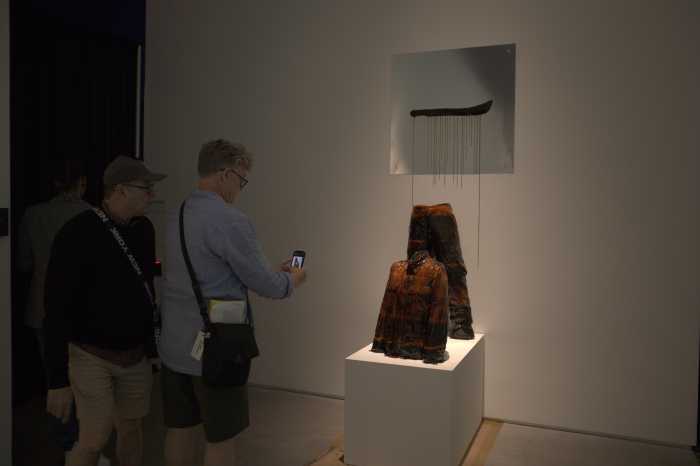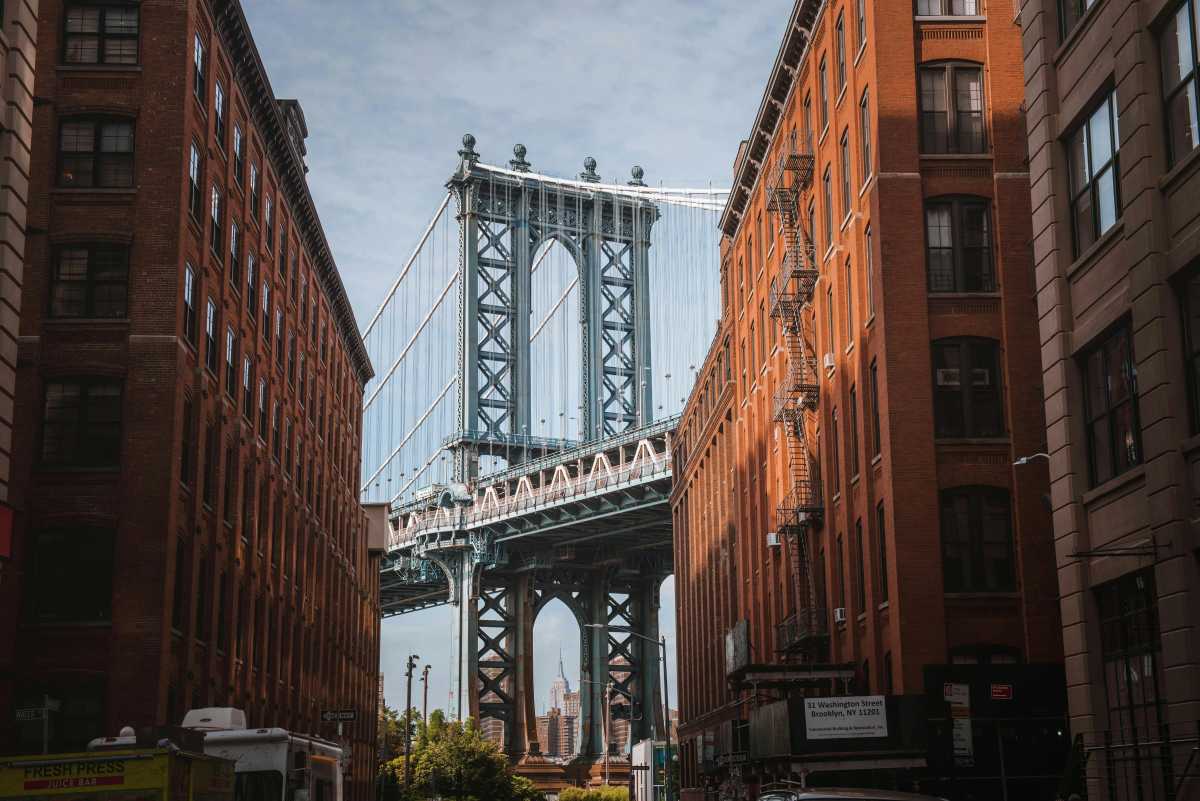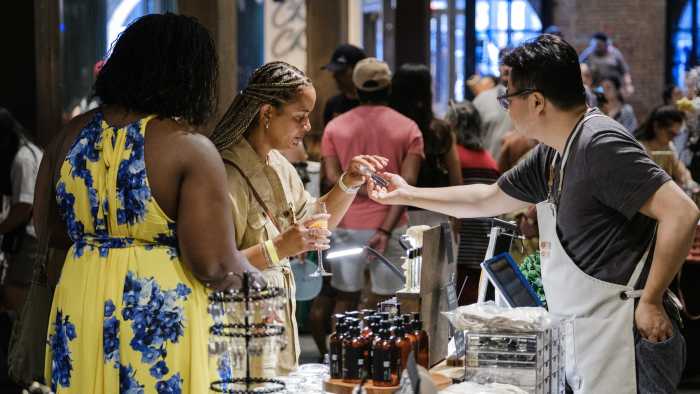Fed up searching stores for compelling fine art puzzles, Brooklynite and jigsaw enthusiast Rami Metal took it upon himself to find the missing piece on the market — Kinstler Puzzles.
Now in its second year of business, the Brooklyn-based company features the art of emerging and established contemporary artists whose pieces are on display at art galleries across the country.
Metal said that when searching for his next jigsaw puzzle to complete, he found his options were mainly limited to a few big-name artists who were from another era.
“I thought about what it would be like to start my own company and to bring the kind of puzzles that I want to do into the world and that’s where the genesis of Kinstler came from,” Metal told Brooklyn Paper.
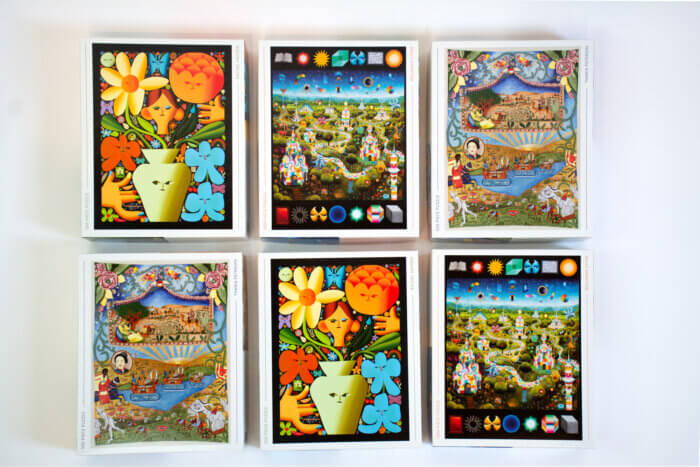
He first came up with the business idea in 2019 — but it was held up by the Covid-19 pandemic, and missed the the initial wave of sales in puzzles and games that skyrocketed during the pandemic.
“The pandemic provided an interesting boost to the puzzle world, but my goal was to create something that isn’t riding that wave,” he said.
Metal officially launching Kinstler — Yiddish for artist — in August 2021, after extensive research into the contemporary art scene.
“I wasn’t from the art world so it took some time to figure out what I liked and what my tastes were,” he said. “I found some amazing artists that I thought would also make for great puzzles and, and thought that this makes sense as a company.”
Two years in and several puzzle drops later, Kinstler’s catalogue ranges from a quintessentially New York jigsaw — the 1,000 piece “Bodega Cat” puzzle by Simone Johnson — to the faces hidden among the chaos of artist Rachel Hayden’s 500-piece puzzle “Self Portrait as a Florist.”
To find the perfect puzzle, Metal said he looks for images that are both visually compelling and that people will want to spend a decent amount of time with.
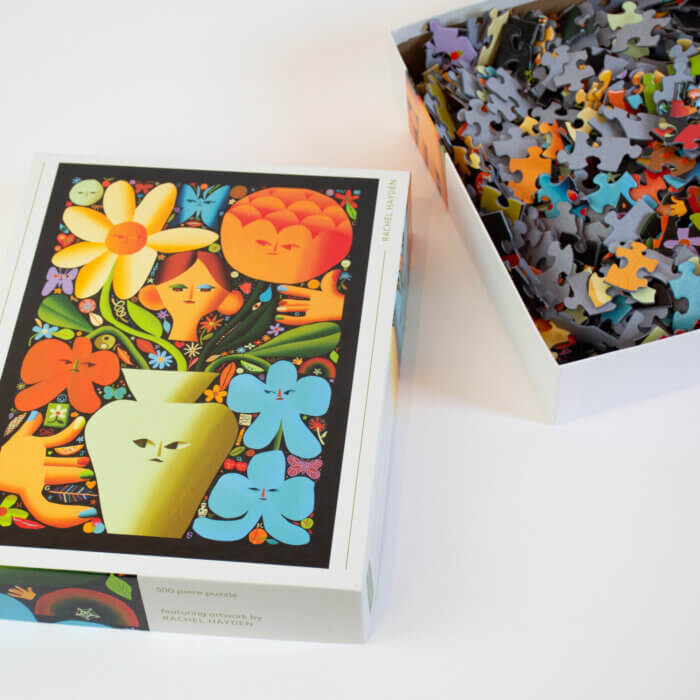
“There are plenty of paintings out there that are fantastic that I think would be maddening as a puzzle,” he said. “I’m trying to give people a pleasurable experience with art that has a lot of detail, that they can discover when they’re doing the puzzle that maybe they wouldn’t see if they’re just checking something out briefly on Instagram or at a gallery.”
Instagram proved a very usual tool for Metal when it came to scoping out artists with unique and distinct visual voices among them was Hayden, who is based in Brooklyn.
Originally from Ohio, Hayden told Brooklyn Paper that moving to New York City and being an anonymous face in the crowd has inspired her art which “seeks order in chaos by puzzle-piecing together a handful of objects into balanced and symmetrical compositions.”
Puzzles were a big feature in Hayden’s house growing up, with one family tradition on New Year’s Eve being that her grandfather would not let the family sit down to dinner until the annual family puzzle was done. The life-long jigsaw puzzle fan said she tries to not look at the box while doing a puzzle, as family tradition considers that cheating. Completing her own jigsaw is a bit easier, though, since she remembers where the pieces go.
A common sentiment among the artists working with Kinstler is that they are usually “tickled pink” to have their work in a puzzle format that people can bring home and experience, on top of the exposure, according to Metal.
“For some artists, it’s really a wonderful thing to be able to have their work be in people’s homes and be accessible in an affordable way,” he said of the artists such as Iran-born and Brooklyn-based Orkideh Torabi.
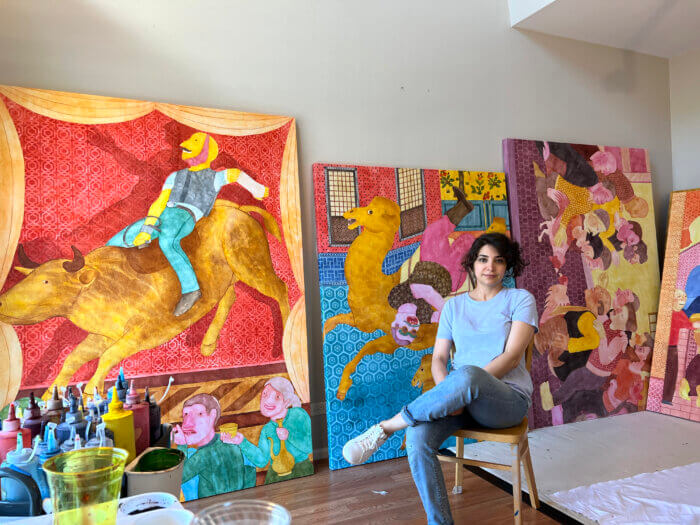
Torabi’s 1,000 piece puzzle, titled “Hookah House,” is from her recent series depicting gender-segregated environments in Iran, inspired by her childhood memories and the classic Persian miniature painting style.
The illustration was first printed with fabric dye on cotton and took one month to complete, before being transformed into puzzle format. “Hookah House” shows men drinking, smoking, and socializing across several scenes, from bathhouses to coffeeshops, with a hint of sarcasm.
“Men-only spaces and women-only spaces are a significant aspect of Iranian society, rooted in religious norms,” Torabi said of her series, which she said is a reaction to challenging moments in her life that she tries to transform into art and “a way for me to cope with reality.”
Iran saw months long-protests in the wake of the death of 22-year-old Mahsa Amini in police custody after she was arrested for flouting the country’s strict dress code for women. Torabi sees her artwork as a form of resistance and one of the only ways she can deal with the ongoing situation.
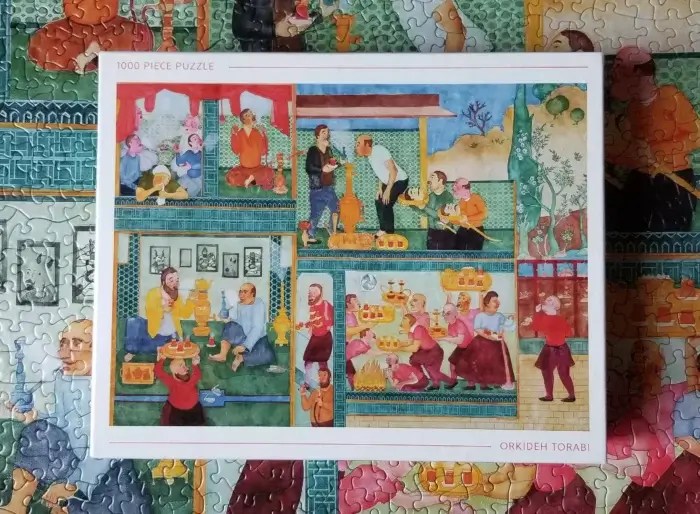
“We can never be direct about the political situation in public because it will put us in danger, so it’s like a coping mechanism,” Torabi said. “So we always have to be indirect about the pain.”
Torabi and Hayden are among the eleven artists working with Kinstler. Included in the puzzle boxes are interviews with the artists behind the jigsaws, along with additional images of their most recent work.
Kinstler puzzles are available for sale in Brooklyn at Word Bookstore in Greenpoint, Greenlight Books in Fort Greene, and McNally Jackson in Downtown Brooklyn, or online. Avid puzzle-lovers can also attend Kinstler’s upcoming puzzle club at the Ace Hotel in Midtown Manhattan on Dec. 13 for casual puzzle-making and a tournament with prizes.





